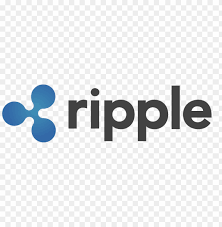







JPMorganChase
New York, NY, USA
Mar 04, 2026



- Communications (9)
- Community Engagement / Affairs (15)
- Community Investment (5)
- Corporate Foundation (6)
- Corporate Giving (5)
- Corporate Reputation (2)
- Corporate Responsibility (17)
- Corporate Social Responsibility (CSR) (21)
- Diversity, Equity & Inclusion (DEI) (6)
- Employee Engagement (9)
- Employee Volunteerism (8)
- Environmental, Social & Governance (ESG) (10)
- Human Resources (4)
- Impact Measurement (8)
- Impact Reporting (10)
- Program Officer (4)
- Social Impact (10)
- Sustainability (13)
- Bentonville (1)
- Birmingham (1)
- Burbank (1)
- Calgary (1)
- Chester (1)
- Dallas (1)
- Denver (1)
- Hamilton (1)
- Hoonah (1)
- Hybrid (13)
- Lancaster (1)
- Lansing (1)
- London (3)
- Los Angeles (1)
- Manchester (1)
- Mansfield (1)
- McLean (1)
- Merrimack (1)
- Milwaukee (1)
- Newark (1)
- New York (13)
- Norristown (1)
- Novato (1)
- Pawtucket (2)
- Philadelphia (1)
- Phoenix (3)
- Plano (1)
- Remote (4)
- Renton (1)
- Richmond (1)
- San Francisco (2)
- San Mateo (1)
- St. Louis (1)
- Washington (4)
- Alabama (1)
- Alaska (1)
- Alberta (1)
- Arizona (3)
- Arkansas (1)
- California (6)
- Colorado (1)
- District of Columbia (4)
- Greater London (3)
- Hybrid (13)
- Massachusetts (1)
- Michigan (1)
- Missouri (1)
- New Hampshire (2)
- New Jersey (1)
- New York (14)
- Pennsylvania (5)
- Remote (4)
- Rhode Island (2)
- Texas (2)
- Virginia (2)
- Washington (1)
- Wisconsin (1)
Latest From the Blog
Jun 10, 2025
1. As the founding Executive Director of a corporate foundation, what skills helped you most when transitioning from nonprofit fundraising to corporate social impact?
When I came over into the corporate side, one of the biggest assets I felt I brought over from the nonprofit side was relationship-building. In order to be a successful fundraiser, you have to learn how to listen deeply and build trust—and those skills directly translate into many fields, but especially in trying to learn a new business and guide a strategy in something that is new for an organization.
I also had the advantage of understanding what it’s like to be a grantee. I knew the challenges nonprofits face daily, and that gave me a lot of empathy when working with partners. I wasn’t coming in to impose a corporate agenda—I wanted to support the work they were already leading and make space for them to really be the experts in the relationship.
When I first moved into the corporate space, I approached it with curiosity. I talked to as many social impact professionals as I could to learn how different companies structured their programs, the challenges they were faces and resources they found helpful in their work. I quickly discovered that there’s no one-size-fits-all in this field, so I wanted to avoid making assumptions.
I will say though that one of the biggest learning curves was the legal side. I quickly realized how complex the rules are around nonprofit law and foundation compliance, so I made a point to learn it, especially when not all corporate lawyers are as well versed in it. That helped me work more effectively with our legal team—and build policies that actually worked for both sides.
2. What advice would you give someone looking to break into their first CSR or corporate foundation role from the nonprofit sector?
Start by talking to people. And then talk to more people. Every conversation gives you insight—and connections. Always ask, “Who else should I talk to?”
Also, build your network and support system. Peer communities like ACCP are a lifeline, especially if you’re a team of one. CSR can be lonely work without a network to bounce ideas off of or even just to calibrate the challenges you are facing
One mindset shift that surprised me was the switch from raising money to giving it away. Internally, that can change how your work is perceived. You’re now spending money, not generating it—so it’s important to clearly show how your work drives business value and to be your own champion to have a voice in the room.
And finally, take the time to really learn the business. I used to sit in on daily business meetings—even when I didn’t understand half of what was being said. To be entirely honest, I wasn’t sure what I was doing that and how it pertained to my work. But hindsight is 20/20 and if I knew then what I know now, I would have been studying every aspect of those meetings from the start. It’s crucial to understand how your company makes money and where the challenges sit so that you can see early on where CSR could align with the business. If I could go back, I’d lean into that even earlier.
3. What was the most challenging part of building a new social impact program from scratch, and how did you navigate it?
Honestly, it was just not knowing what I didn’t know. CSR is so broad—encompassing grantmaking, volunteering, disaster response, DEI—and when you’re starting from nothing, it can feel overwhelming.
What helped was starting small and being really thoughtful about what we could take on. It’s tempting to try and launch everything at once, especially when there are so many great ideas out there. But not every company is ready for everything—and that’s okay.
It also took time to help internal teams understand the “why” behind what we were building. It took me four years to get a matching gifts program approved. Not because anyone was against it—they just didn’t fully understand the benefit and we have to make sure the timing was right to announce it. That taught me to be patient, and to keep making the case, one conversation at a time.
In the end, I looked at it like building a roadmap. You can’t launch everything on day one, but you can start laying the foundation for where you want to go.
4. How important is relationship-building in this field, and what strategies worked best for you in strengthening those connections?
It’s everything. Strategy is great, but without strong relationships—internally and externally—you won’t get far.
I’ve always thought of CSR as equal parts puzzle master and matchmaker. You’re constantly connecting the dots between business needs, community needs, and partner capabilities.
I’ve said it before, but what’s worked best for me is leading with curiosity. Instead of saying, “Here’s what we do,” I ask, “What are your biggest challenges, and how can we support you?” That mindset opens doors and builds real partnerships. This curiousity also made me dig and dig deeper into programs, pathways, what benchmarks were out there, what the legal ramifications are...on and on and on, and ultimately your work is better for it.
I learned this from someone else, but when working with nonprofits, one of my go-to questions was, “If you could wave a magic wand, what would you change at your organization?” It got past the formal answers and into what really mattered and sometimes forced them to think even beyond the grant.
And one more thing: CSR work lives in the gray. There are very few black-and-white answers, so staying open, listening more than you speak, and being okay with some ambiguity goes a long way.
5. What’s one thing you wish job seekers in this field better understood about corporate social impact roles?
That it’s not just feel-good work. It’s fulfilling, but also complex, strategic, and sometimes heavy.
You’re not just giving out grants all day. You’re making hard choices, balancing conflicting priorities, and navigating a fast-changing world. We say “no” more than we say “yes”—and that emotional load can add up.
Also, you’ll never know it all. Everyone in this field is still learning. There’s no single playbook, which means you’ve got to stay inquisitive and adaptable. On the plus side, it means you can “play” - experiment and see what works and don’t be afraid to try something new.
Jun 10, 2025
For those looking to transition from nonprofit or higher education into corporate social impact roles, the journey can seem unclear. In this interview, Ashley Johnson shares real-world insights and advice drawn from their path into corporate community relations, offering guidance for anyone considering a similar move.
Q: You moved from nonprofit and higher education into a corporate community relations role — what helped you make that jump successfully?
Interestingly, my background as a competitive athlete played a considerable role. Through sports, I learned to work cohesively in a team toward a common goal — a skill that has translated across every professional setting. Beyond teamwork, communication, adaptability, and intuitively anticipating the needs of both people and organizations were crucial. These soft skills helped me transition successfully into a corporate community relations role.
Q: For someone exploring corporate CSR roles, what key skills or experiences should they highlight during the job search?
Communication is key — especially the ability to work across differences. Strategic thinking is another important asset. Aligning with an organization’s mission and navigating within its structures strategically sets you apart. Program management skills also matter greatly. Managing multiple projects, prioritizing during high-pressure situations, and executing efficiently are critical, especially in a field where capacity can be stretched thin.
Q: What advice would you give someone feeling stuck in a nonprofit role but interested in transitioning into corporate social impact?
First, don't assume the move will solve all your problems. Corporate philanthropy isn’t just about writing checks — it comes with its challenges. Do your research: talk to people in the field, understand the language and dynamics of the corporate space, and prepare yourself for cultural differences like “golden handcuffs” or the corporate pace. Networking is essential — attend events, build relationships, and engage in genuine conversations to gain a clear understanding of what working in corporate social impact is truly like. It’s about knowing if the environment and expectations align with your values and work style.
Q: How did your background in psychology and kinesiology shape your approach to social impact work?
Psychology drew me in because of my passion for understanding human behavior and building relationships — both of which are central to social impact work. Although I explored counseling and sports psychology, the common thread through my education and career has always been relationship-building and service. I never specifically planned for a career in CSR; I followed my interest in working with people and helping communities — which naturally led me here.
Q: What was the biggest lesson you learned managing community impact programs, and how does it influence your approach today?
Flexibility has been critical, but equally important is learning how to advocate — for nonprofit partners and business priorities. Balancing those relationships is essential. I also had to become skilled at managing up — tailoring communication and storytelling to different audiences, whether reporting to VPs, CEOs, or corporate boards. The goal was to ensure nonprofits’ needs were met without placing undue burdens on them. Ultimately, being a trusted resource for the community has remained at the heart of my work, whether inside a nonprofit or within a corporation.
Apr 28, 2025
In a field as dynamic as corporate social impact, few leaders bring the depth of experience and perspective that Andrea Wood , CEO of ACCP, offers. With a career spanning the nonprofit, corporate, and philanthropic sectors, Andrea has navigated cross-sector transitions, built high-performing teams, and helped shape the evolving role of CSR leaders today.
In this Q&A, she shares lessons learned across her journey—from building core skills to aligning social impact with business priorities—and offers candid advice for those looking to grow, lead, and create lasting change.
With such a diverse career across corporate, nonprofit, and foundation roles, what skills are most transferable and valuable at each stage?
The most universally valuable skill I’ve carried with me across every stage of my career is the ability to build internal and external relationships. Collaboration is critical whether you're working with business leaders, nonprofit partners, or community stakeholders.
Listening with curiosity, welcoming feedback, and being willing to course-correct based on what you hear—that's what builds trust and unlocks better outcomes. I always try to pair instinct with insight: I trust my gut but talk with the people closest to the work. They’re the ones who bring the expertise and lived experience that sharpen decision-making.
How did you approach job changes throughout your career? What strategies helped you identify and land new opportunities?
It starts with self-awareness. You have to know when you’re ready for a change—and be honest with yourself if your energy or passion has shifted. I've seen people stay in roles too long because they feel stuck, when that sense of being stuck is self-imposed. You're the only one who can move yourself forward.
When I’m ready to change, I get clear on what I want next—and then take one action each day. It doesn’t have to be big. Some days it’s a coffee chat. Other days it’s checking a job board or sending a message. Five minutes of action a day adds up. That’s how I transitioned from Target to Best Buy—a move that happened surprisingly fast because I had set my intentions and followed through with consistent momentum.
It’s also about resilience. You won’t always get a “yes” right away, but things start to shift if you keep moving forward with purpose.
What advice would you give someone aiming to advance into a corporate social impact leadership role?
First, get as much hands-on experience as you can. Before I led the social impact team at Best Buy, I had worked on everything from volunteerism to signature programs to disaster response. That breadth gave me insight into the function as a whole—and prepared me to lead effectively.
Second, you must advocate for yourself . I think this is especially true for women. Many of us assume that doing good work will be noticed and rewarded. In reality, you need to speak up. You need to make your case—clearly and confidently.
When I felt ready to lead the team at Best Buy, I didn’t wait for someone to tap me. I scheduled a meeting with my manager, laid out my qualifications, and made a compelling, logical argument for why I was the right person for the job. It worked—but only because I took the initiative. Self-advocacy is a skill we all need to practice.
Looking back, what would you tell your younger self—or someone just starting—about navigating a long-term career in this field?
Know yourself. Understand what you enjoy, what you’re good at, and where you want to grow. Don’t pursue the next role just because it’s a promotion. Ask yourself: Is this work I’ll actually enjoy?
Every job teaches you something—about what energizes you, what drains you, what kind of team you want, and what type of leader you want to be. Use each role as a learning opportunity to refine your goals. The goal is not just to move up, but to move into roles that truly fit who you are.
And remember: it’s okay to shift directions. I know leaders who have taken a step back after realizing they didn’t enjoy managing a team. That kind of self-awareness is powerful. Life’s too short to stay in a role that doesn’t align with your strengths or values.
How have you seen the required skills for social impact professionals change over the years?
Today, you need to understand the business. You have to speak the language of your internal partners, especially at the executive level.
It was a steep learning curve when I first transitioned from the nonprofit world to corporate. I didn’t know the structure, the finance terms, or how decisions got made at scale. But I was committed to learning. I asked questions, listened to earnings calls, and sat with colleagues who could explain what I didn’t understand. I still do that today.
You can’t build strong partnerships—or make a compelling business case for your work—if you don’t understand what your stakeholders care about. So be curious. Learn the strategy. Learn the numbers. Learn how your work connects to company priorities. That fluency makes you more effective—and more influential.
Final Word from Andrea: "This is complex work. It requires empathy, strategy, patience, and persistence. But if you build your skills, advocate for yourself, and stay grounded in purpose, it’s one of the most rewarding paths you can take."


